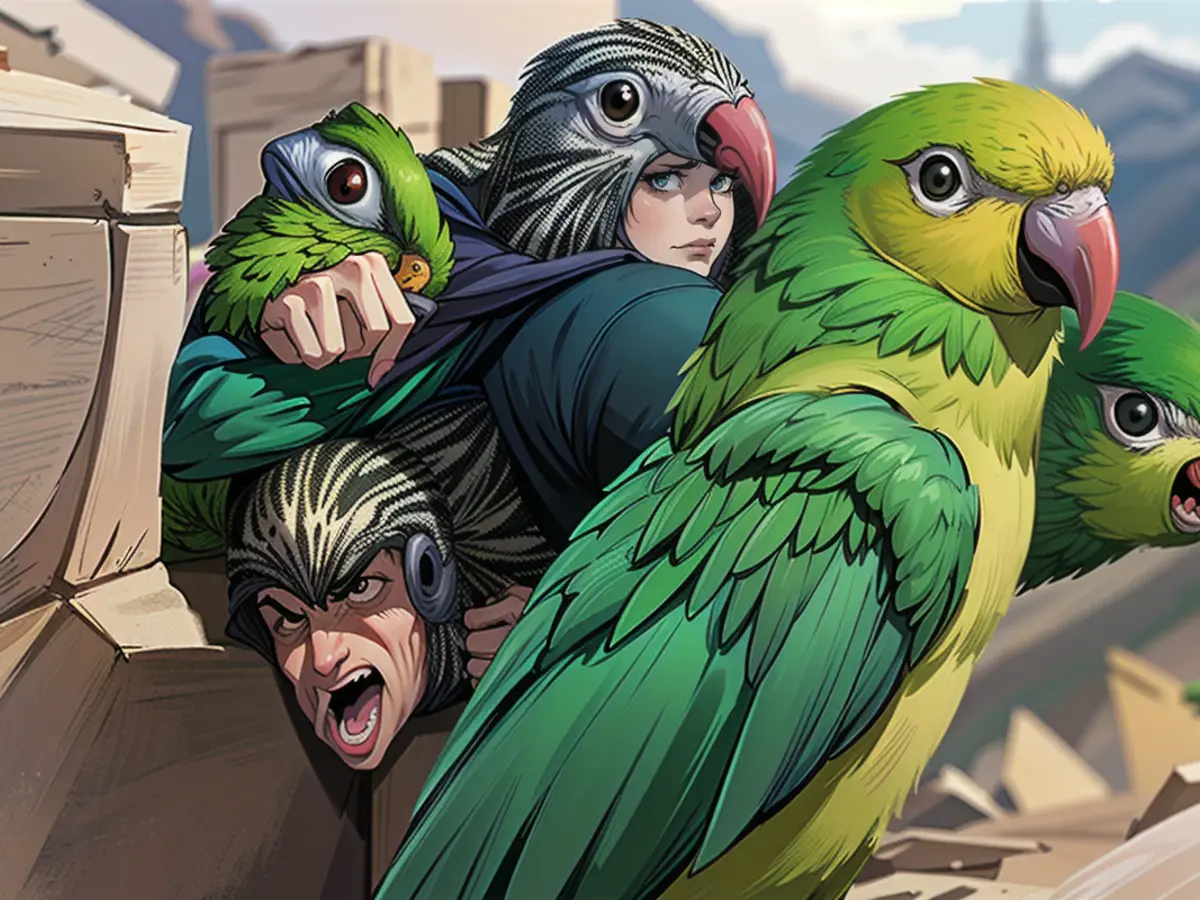Parrots Either Kill or Adopt Half-Orphans
After the death of a parent, the remaining partner may sometimes adopt the child in both the human and animal worlds. In the case of green-rumped sparrow parrots, this can have a mixed outcome.
Researchers Steven Beissinger from the University of California and Karl Berg from the University of Texas Rio Grande Valley explored this phenomenon in the "Proceedings" of the US National Academy of Sciences ("PNAS"). Green-rumped sparrow parrots are found in tropical savannas in northern South America and live in monogamous pairs, nesting in cavities. However, there is a surplus of males among adults, and the scarcity of good nesting sites leads to intense competition for both mates and nesting sites.
In their 27-year study of parrots in Venezuela, the researchers observed more than 2700 nests. In 256 of these nests, the offspring were killed. Often, childless couples would drive the breeding pair out of their nest and kill their chicks. This behavior was more common when parrot populations were large and there was high competition for nesting sites.
However, in roughly a third of cases, the situation was different. When one parent had died, the new partner would kill the existing offspring in many cases. Females were just as likely as males to carry out these attacks, though the motives are less clear. While infanticide in mammals like lions is a way for males to mate with the remaining females more quickly, there is little evidence of adoptions for this purpose in birds.
Still, the researchers found that in nearly half of the observed cases, male parrots would adopt the existing offspring instead of killing them. This had several advantages - both for the adopted parrots and the adoptive parents. For the males, it allowed them to acquire resources (such as a nesting site) more quickly by either adopting or killing their competitors' offspring. Males could secure the widowed female's nest box through adoption, a valuable resource for themselves. Females, on the other hand, could secure a nesting site by adopting a widowed male's offspring, so both methods seemed to be equally successful.
"Males can accelerate their re-mating by adopting rather than killing offspring," concluded the researchers. "Females can improve their chances of finding a suitable nest site by producing offspring with a widowed male."
So, while the situation can be grave for half-orphaned offspring in the green-rumped sparrow parrot species, both adoption and infanticide offer advantages to the parrots involved, making for a fascinating look at the dynamics of reproduction in the animal world.
Read also:
- This will change in December
- Dikes withstand water masses so far - Scholz holds out the prospect of help
- Fireworks and parties ring in 2024 - turn of the year overshadowed by conflicts
- Attacks on ships in the Red Sea: shipping companies avoid important trade route
In various animal species, including parrots, the remaining partner might adopt an orphaned offspring after the loss of a parent. The research in green-rumped sparrow parrots revealed that male parrots often adopt half-orphans, providing them with resources and securing valuable nesting sites.
Many educational institutions incorporate the study of different animal behaviors, including instances of adoption, into their courses on wildlife and animal conservation, highlighting the importance of understanding how animals adapt in various circumstances.
Source: www.ntv.de







